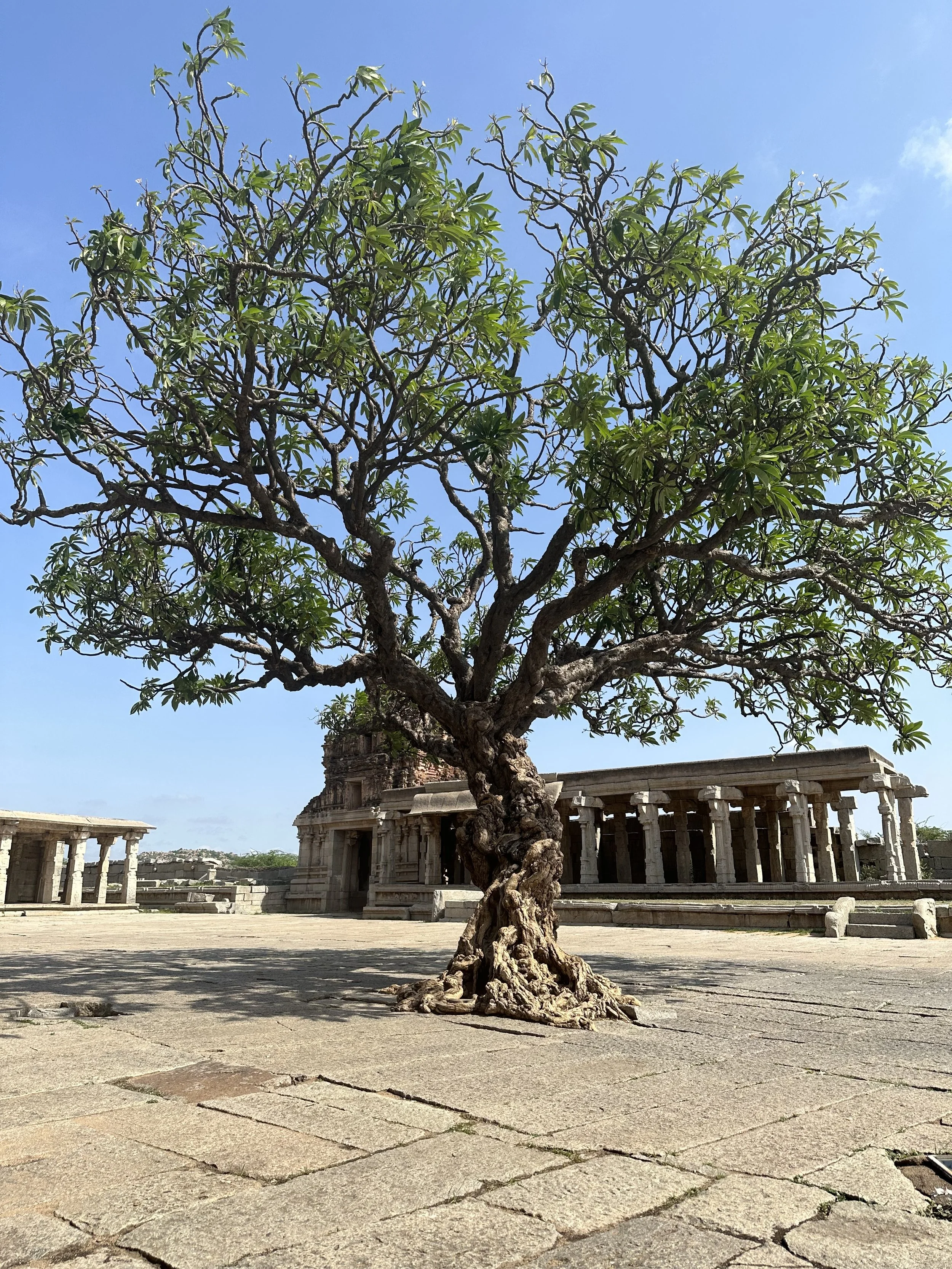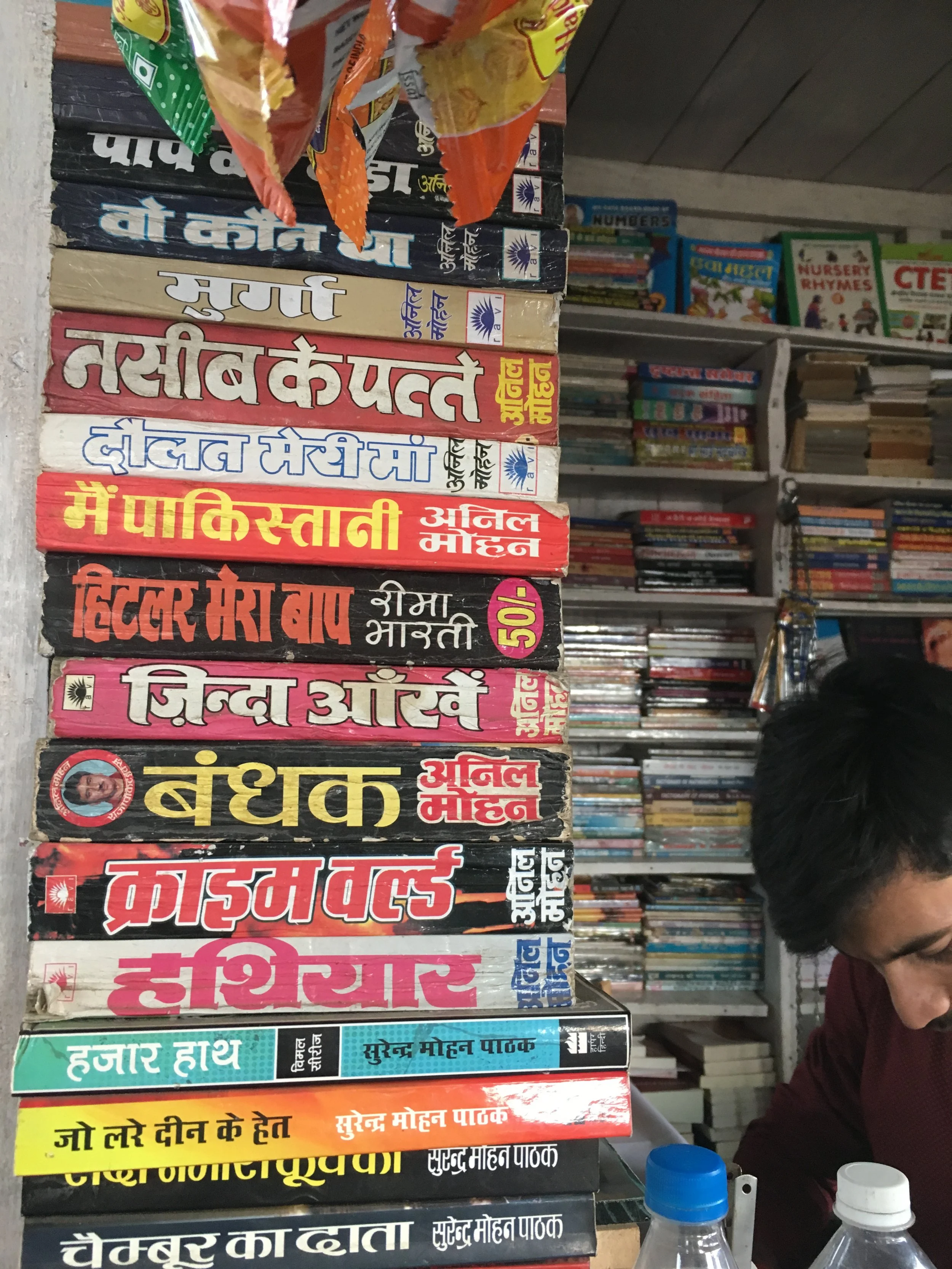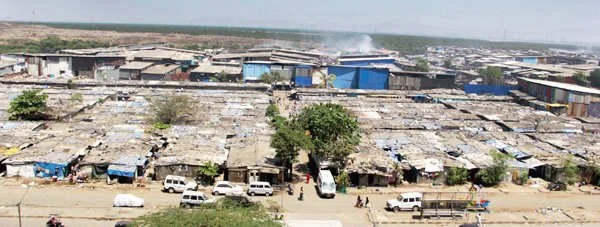Essays and Selected Journalism:
Ruins Upon Ruins. The Point. Issue 31, December 17, 2023. Article Link (publisher's version). Article Link (academia.edu).
My destination was Hampi, one of India’s most stunning archaeological sites, the seat of a fabulously wealthy empire between 1336 and 1565 CE. At the peak of its power and influence, Hampi, then known as Vijayanagara (“Victory City”), was one of the major cities of the world, said to be as large as Rome and just as beautiful, a walled citadel of gardens, temples and palaces. Today, it is a city of ruins, sacked and pillaged in 1565 by an alliance of Muslim principalities, and abandoned for centuries.
The Principle of Hope. The Point. March 20, 2023. Article Link (publisher's version). Article Link (academia.edu).
Five years ago I spent a miserable day in the hometown of Vinod Kumar Shukla, a poet and novelist who writes in Hindi and recently won this year’s PEN/Nabokov Award for Achievement in International Literature. Many of us undertake an absurd literary pilgrimage at some point in our lives; this was mine.
Ethnic Studies. The Point, Issue 28, October 18, 2022. Article Link (publisher's version). Article Link (academia.edu).
It is the discomforting vision of ethnic studies alluded to by Naipaul’s trapdoor metaphor that I want to teach and study, without his bigotry and meanness—ethnic studies as an invitation to knowledge, worldliness, literature, life.
Heart and Hurt. The Point. August 19, 2022. Article Link (publisher's version). Article Link (academia.edu).
I first encountered Rushdie in my teens, as a tabloid celebrity: a squat, balding man posing next to the very beautiful and very tall Padma Lakshmi. Rushdie was in the papers all the time those days—he was perhaps the most famous Indian-born figure out there in the white, English-speaking world.
Pain and Wonder: The Wounding Journeys of Abdulrazak Gurnah. The Point. March 15, 2022. Article Link (publisher's version). Article Link (academia.edu).
European languages and maps do not mark the limits of Gurnah’s literary universe. What really haunts Gurnah’s prose is the centuries-long layered history of Arab and Indian presence on the Swahili coast, a history as beautiful and brutal, as ugly and bizarre, as a medieval sailor’s tale.
In Defense of Grad School. The Chronicle of Higher Education, Vol. 56 Issue 21. February 14, 2020. Article Link (publisher's version). Article Link (academia.edu).
I had never been outside India, and I thought graduate school would unlock the world for me — and it did. I learned to eat with chopsticks and tell wines apart; I experienced snowfall for the first time; I squandered my summer funding on a trip to Europe just because, just to tell myself I too could stand before Marx’s grave or walk down the same bridge as Kafka.
Hell Revisited (with Mustafa Shaikh). Mumbai Mirror. April 6, 2015. Article Link (publisher's version).
The power went out in Sathe Nagar A Block four months ago. It hasn't returned since. A few hundred yards away, in B Block, the wires thrum with electricity. These two scraggly portions of land are portioned roughly into halves by a nullah, with rancid sewage and frayed plastic bags trapped in oil-black sludge.






